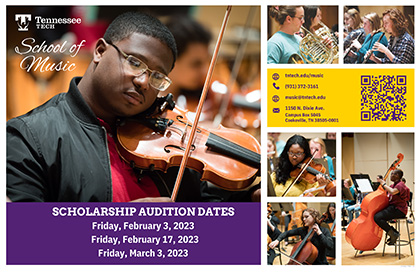Antonín Dvořák was born in Nelahozeves, Bohemia (now, the Czech Republic), on September 8, 1841, and died in Prague on May 1, 1904. The first performance of the Serenade in E Major took place in Prague on December 10, 1876, Adolf Čech, conducting. Approximate performance time is twenty-seven minutes.
In the summer of 1874, Antonín Dvořák applied for the Austrian State Stipendium, an award given by the Vienna Ministry of Education to “young, poor and talented artists.” The Prague Town Clerk’s Office provided a certificate, attesting to the fact that the 32-year-old composer was, indeed, in dire financial straits. Dvořák submitted numerous compositions for review by a distinguished panel that included Johann Herbeck, Director of the Vienna Court Opera, Eduard Hanslick, the noted Viennese critic, and the great German composer, Johannes Brahms.
Dvořák succeeded in impressing the panel and, as a result, was awarded a considerable stipend. In addition to that initial grant, made in the early part of 1875, Dvořák was the recipient of an Austrian State Stipendium each of the following two years. These awards provided Dvořák with the much-needed resources to pursue his career as a composer.
Perhaps of even greater long-term benefit, Dvořák’s application for the Austrian State Stipendium brought the Czech composer to the attention of Brahms. Dvořák and Brahms would ultimately become dear friends. And Brahms expended considerable effort to assist his younger colleague. On December 12, 1877, Brahms wrote the following to his publisher, Simrock:
Dear S.
In connection with the State Grant I have for several years past had great pleasure in the works of Antonín Dvořák (pronounced Dworschak) in Prague… Dvořák has written all sorts of things, operas (Czech), symphonies, quartets and piano music. There is no doubt he is very talented. And then he is also poor. I beg you to think the matter over. The “Duets” won’t give you much thought and will possibly sell well.
Here, Brahms refers to Dvořák’s Moravian Duets, written for soprano and alto voices, with piano accompaniment. Simrock issued the Moravian Duets the following year, and their highly successful distribution was the beginning of a long and rewarding association. The influential German publisher’s distribution of Dvořák’s music helped to bring the Czech composer to international prominence.
The award of that first Austrian State Stipendium seemed to inspire an extraordinary period of creativity. In March of 1875, Dvořák completed his String Quintet in G Major (rev. 1888), Opus 77. Between May and July of that year, Dvořák composed the Piano Trio in B-flat Major, Opus 21; the Piano Quartet in D Major, Opus 23; Moravian Duets for soprano, tenor, and piano, Opus 20; and the Symphony No. 5 in F Major, Opus 76.
The Serenade in E Major for Strings, Opus 22, also belongs to that remarkably productive period. Dvořák completed the work in the span of less than two weeks, from May 3 to 14, 1875. Some believe that the Serenade may have been a reworking of an 1873 composition, originally scored for an octet of clarinet, horn, bassoon, two violins, viola, bass, and piano.
The Serenade for Strings received its premiere on December 10, 1876. Adolf Čech led a Prague Jubilee Concert of the Friends of the Czech Theater Orchestra and Chorus Dvořák’s lovely, inventive Serenade for Strings is one of the earliest compositions of the Czech master to maintain a regular presence in the concert repertoire.
The Serenade is in five movements. The first (Moderato) presents a flowing theme, softly intoned by the violins. The second movement is a melancholy waltz (Tempo di valse) in F-sharp minor, with a D-flat Major Trio section that also has moments of storm and stress. The third-movement Scherzo (Vivace) is based upon a quicksilver theme, introduced at the outset. The Serenade’s slow-tempo movement (Larghetto) is cast in A—B—A form. The Serenade concludes with a vigorous Finale (Allegro vivace), notable for its irrepressible energy. There is a reprise of music from the opening movement before the return of high spirits in the concluding Presto section.
program notes by Ken Meltzer




